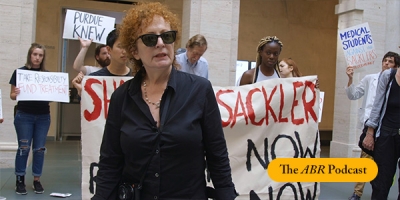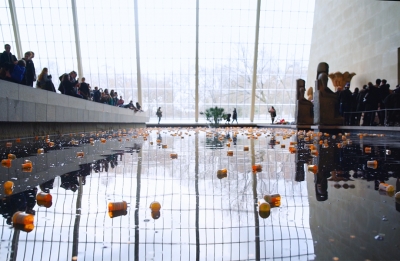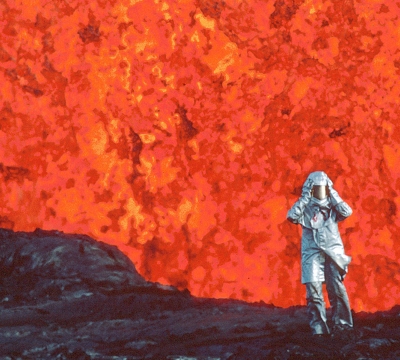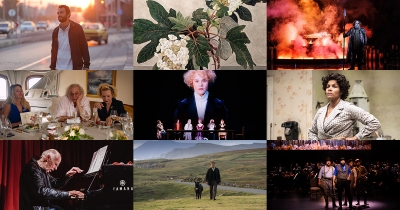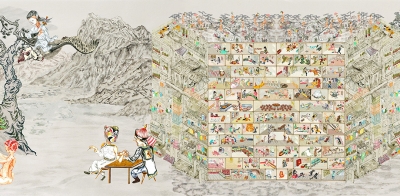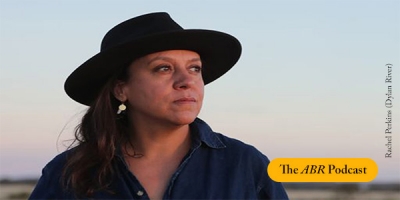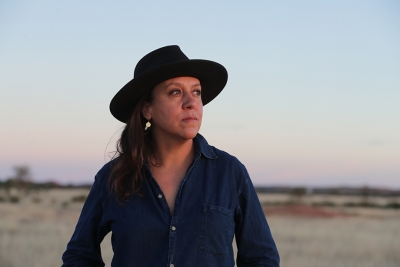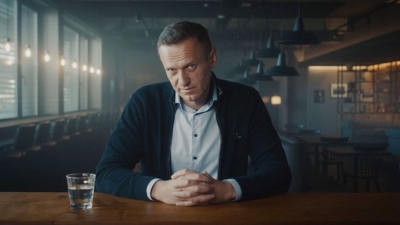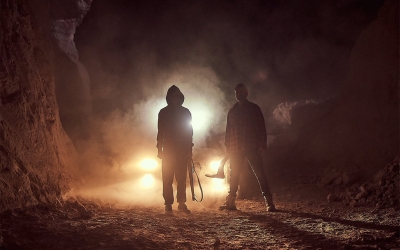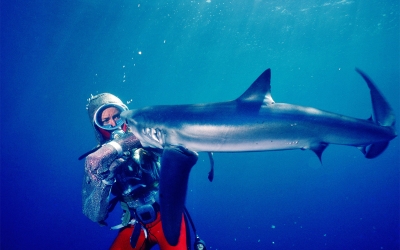Anne Rutherford
Sign up to From the Archive and receive a new review to your inbox every Monday. Always free to read.
Recent:
In this week’s ABR Podcast, film critic Anne Rutherford reviews Laura Poitras’s documentary All the Beauty and the Bloodshed, last year’s winner of the Golden Lion for Best Film at the Venice Film Festival. The film traces a campaign led by artist Nan Goldin to draw attention to America’s prescription painkiller epidemic via highly staged events, including a spectacular ‘die-in’ at New York’s Guggenheim Museum in 2019. Here is Anne Rutherford, Adjunct Associate Professor in Cinema Studies at Western Sydney University and the author of What Makes a Film Tick.
... (read more)To celebrate the year’s memorable plays, films, television, music, operas, dance, and exhibitions, we invited a number of arts professionals and critics to nominate their favourites.
... (read more)This week’s ABR Podcast features Anne Rutherford’s review of the new SBS miniseries The Australian Wars, published in the November issue of ABR. Directed by Arrernte and Kalkadoon woman Rachel Perkins, the series is an attempt to recast Australian frontier conflict by posing new questions. Echoing Perkins, Rutherford asks: ‘Why is the extreme violence of the frontier not recognised as war?’ and ‘Why is the death of an estimated 100,000 people on the frontier, both black and white, not acknowledged and memorialised?’ Listen to the ABR Podcast here.
... (read more)At a pivotal moment in the new SBS miniseries The Australian Wars, director and presenter Rachel Perkins takes us to a place she says is ‘etched in the memory of my family. A place called Blackfellas Bones.’ Perkins turns to talk directly to camera: ‘You know, we turn away from things that we don’t want to see. We all do it. And I admit that I actually didn’t really want to make this documentary series because I knew that I’d have to spend years going through the horror of it. But … making this film has led me to this place … a place where many members of my family were killed. But my great grandmother survived to tell the story.’
... (read more)In the documentary film Navalny, Christo Grosev, chief investigator with the Bellingcat group of independent journalists, details how he followed the data trail to identify the FSB (Russian secret service) kill team who shadowed Alexei Navalny (leader of the opposition movement) to Siberia in August 2020 and poisoned him with the Soviet-era nerve agent Novichok. The attack left Navalny in a coma, teetering between life and death in a Russian hospital, the doctors apparently complicit in the attempts to cover up the source of his illness.
... (read more)Eleven vials of smallpox virus were transported to Sydney on the First Fleet by Surgeon John White1. In the crucible of a filmmaker’s mind, this historical fact is forged into fantasy, the vials transmuted into eleven vampires, let loose to suck the lifeblood out of the local people. When that filmmaker is Warwick Thornton (Sweet Country, Samson and Delilah), this monstrous cargo becomes a metaphor to explore the atrocities of colonialism and their emotional sequelae, all wrapped in the idiom of genre. This is Firebite, an Aboriginal vampire thriller television series, co-created by Thornton and Brendan Fletcher (Mad Bastards) and co-directed by Thornton, Fletcher, and Tony Krawitz (The Tall Man).
... (read more)Any film about shark conservation faces a dilemma: how to de-sensationalise an animal whose cinematic charisma relies on the combination of thrill and fear. What reels us in as viewers is the excitement of an up-close, full-frontal encounter with a dangerous predator. Film scholar Tom Gunning talks about this as ‘lust for the eyes’, when an image ‘rushes forward to meet the viewer’, provoking ‘a complicated sort of excitement bordering on terror’.
... (read more)

